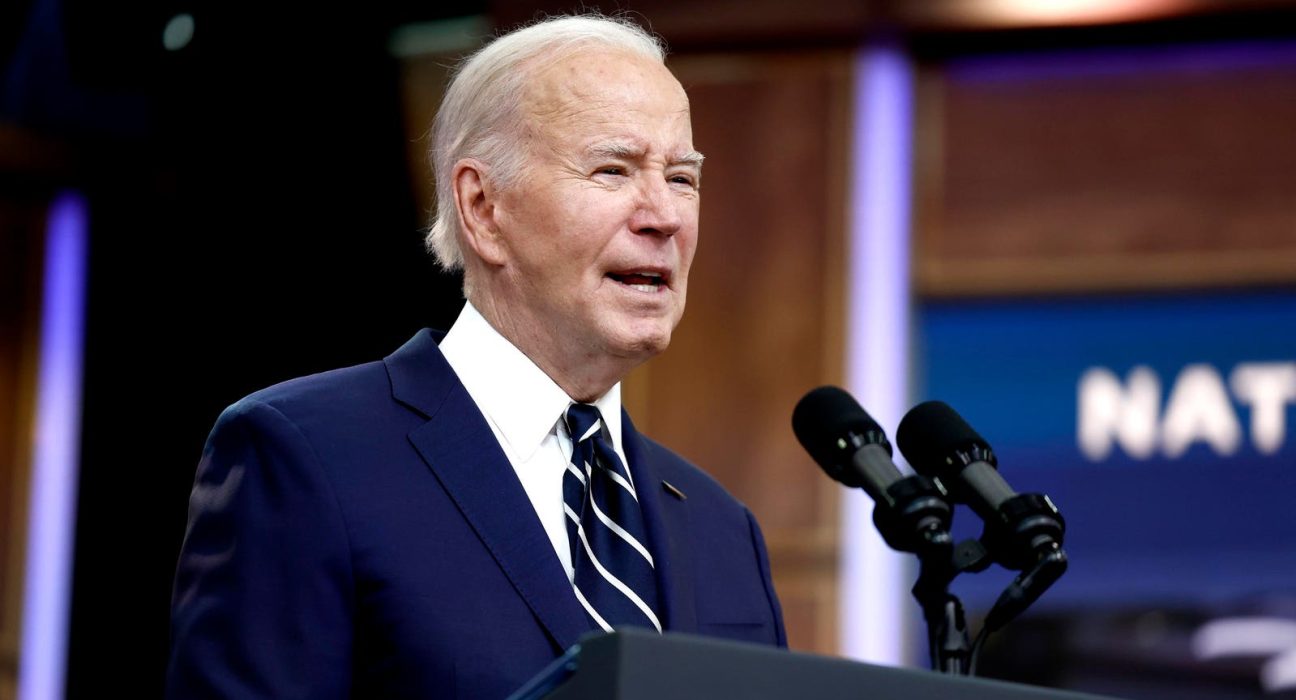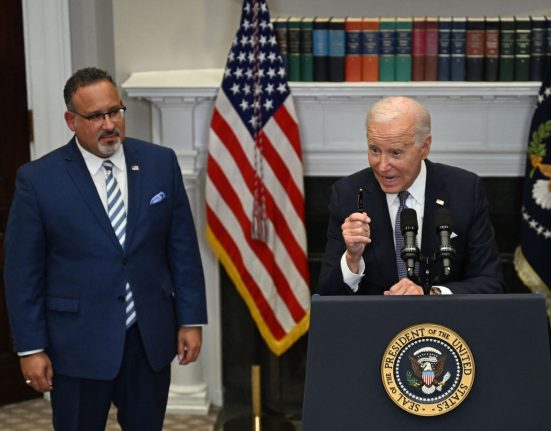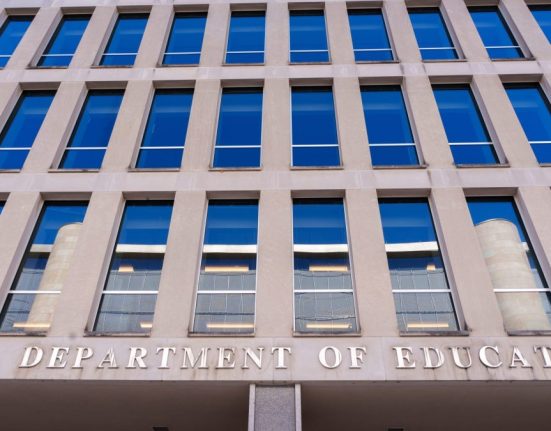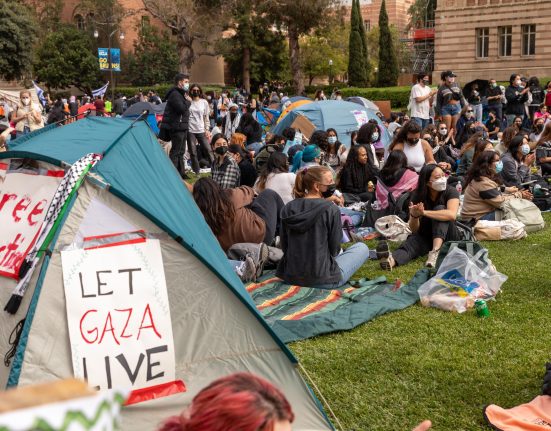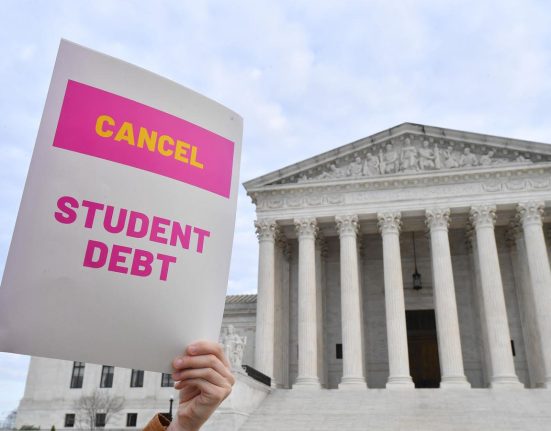WASHINGTON, DC – APRIL 12: U.S. President Joe Biden gives remarks from the South Court Auditorium in … [+]
A federal appeals court has extended an injunction on new Biden administration regulations for a student loan forgiveness program geared toward borrowers misled or defrauded by their school.
The action taken by the Fifth Circuit Court of Appeals is related to an ongoing legal challenge to the Borrower Defense to Repayment program, and effectively extends a block that had already been in place since last summer. The decision makes it far more likely that the new rules will ultimately get struck down. This leaves borrowers seeking relief under the program with a significant amount of uncertainty.
Here’s the latest, and what borrowers need to know.
Student Loan Forgiveness For Defrauded Borrowers Easier Under New Biden Rules
The Borrower Defense to Repayment program can provide federal student loan forgiveness and other debt relief (such as refunded payments and corrected credit reports) to borrowers who were harmed or misled by the school that they attended.
“Under the law, you may have a borrower defense to repayment if your school engaged in certain misconduct related to the making of a federal loan or the educational services it provided which caused you harm warranting a full discharge of your applicable federal Direct Loans,” says Education Department guidance. Misconduct can include false promises or misrepresentations about central elements of a degree or certificate program such as admissions selectivity, career services, earnings prospects, or the transferability of credits to other institutions.
The Borrower Defense program has been stuck in political, administrative, and legal battles for years, with multiple versions of regulations governing the program. Congress first authorized Borrower Defense relief in 1994. The Obama administration developed new regulations and a formal application process for Borrower Defense in 2016. The Trump administration enacted new rules in 2019 designed to narrow the scope of relief under the program and make it harder for borrowers to qualify for loan forgiveness.
The most recent Borrower Defense rules were enacted by the Biden administration last summer. The new regulations effectively overturn the Trump-era rules and make a number of changes designed to broaden relief. This includes the removal of a statute of limitations, allowance for complete (as opposed to partial) student loan forgiveness as well as group discharges, and a wider array of school misconduct that can qualify as a basis for Borrower Defense relief such as “aggressive and deceptive recruiting” and omissions (rather than affirmative lies or misrepresentations). The updated regulations also allow the Education Department to seek recourse against institutions for approved Borrower Defense claims.
Borrower Defense to Repayment is a key student loan forgiveness program. The Biden administration has already approved at least $22 billion in loan forgiveness for more than 1.3 million borrowers through Borrower Defense and other school-related discharges, according to the Education Department.
Biden Student Loan Forgiveness Rule Halted By Court
But a group of schools based in Texas filed a lawsuit to block the new Biden administration Borrower Defense regulations. When a lower court declined to impose an injunction while the litigation proceeded, the coalition of schools appealed to the Fifth Circuit Court of Appeals. That court imposed an initial injunction in August, preventing the Biden administration from processing student loan forgiveness Borrower Defense applications under the new, more borrower-favorable rules.
On April 4th, the Fifth Circuit issued a much more comprehensive decision and order, formally blocking the Biden administration’s regulations and suggesting the rules were likely to get overturned.
“The district court declined to issue a preliminary injunction against the Rule solely on the basis that the plaintiffs had not shown irreparable harm,” said the court. “Not only do we disagree with that finding, but we assess a strong likelihood that the plaintiffs will succeed on the merits in demonstrating the Rule’s numerous statutory and regulatory shortcomings.” The court concluded that the expansive scope of relief afforded to borrowers under the new regulations exceeded what Congress had authorized by statute.
Advocates for borrowers were highly critical of the court’s ruling.
“The Fifth Circuit got it exactly backwards. Borrower Defense is a critical protection for student borrowers and has been in place for over thirty years. It’s the brazenness of for-profit schools, the scope of their greed, and the willingness of courts to accept their specious complaints that is new and unprecedented,” said Eileen Connor, President and Executive Director of the Project on Predatory Student Lending, in a statement. Connor characterized the challenge “another troubling sign of a political climate in which people are using the courts to take away people’s legal rights. The scale of the federal student loan program invites abuse, and that is why Congress authorized borrower defense decades ago.”
What The Court’s Ruling Means For Those Seeking Student Loan Forgiveness Through Borrower Defense
With the Biden administration’s Borrower Defense rules blocked, the Education Department is prohibited from applying those regulations to pending applications. As a result, the department has slowed or halted student loan forgiveness processing efforts for Borrower Defense applications.
“On Aug. 7, 2023, a federal court issued an injunction delaying the effective date of the latest regulations governing borrower defense and closed school loan discharges until at least November 2023. The Department will not adjudicate any borrower defense applications under the latest rule unless and until the effective date is reinstated,” says current Education Department guidance. “While this injunction is in effect, borrowers may still apply online for borrower defense relief. The Department will continue to adjudicate borrower defense applications using an earlier version of the regulations where required under a court settlement.”
If the Biden loan forgiveness rules for Borrower Defense are ultimately overturned — as now seems likely — the program would largely revert to the Trump- and Obama- era regulations, depending on when borrowers took out their student loans and when they apply for loan forgiveness. Because of a three-year statute of limitations and other restrictions under the Trump-era 2019 regulations, borrowers who could qualify for student loan forgiveness under the Biden rules may get no relief under the 2019 regulations. The Biden administration could try to rewrite the Borrower Defense regulations a second time, but this would likely take at least one to two years.
Other Biden Student Loan Forgiveness Programs Face Legal Challenges
Borrower Defense is not the only student loan forgiveness program facing legal challenges.
Two coalitions of over a dozen Republican-led states recently sued the Biden administration to block student loan forgiveness and other relief under the SAVE plan. SAVE is a new income-driven repayment plan that can lower monthly payments and provide a fast-track to student loan forgiveness for certain borrowers. While eight million people have already enrolled in the program, the GOP-led states are trying to halt the program before the final regulations go into effect this July.
Meanwhile, President Biden unveiled a new mass student loan forgiveness plan earlier this month. The program could benefit up to 30 million borrowers, and may go live as soon as this fall. But that initiative will almost certainly be challenged in court, as well.

